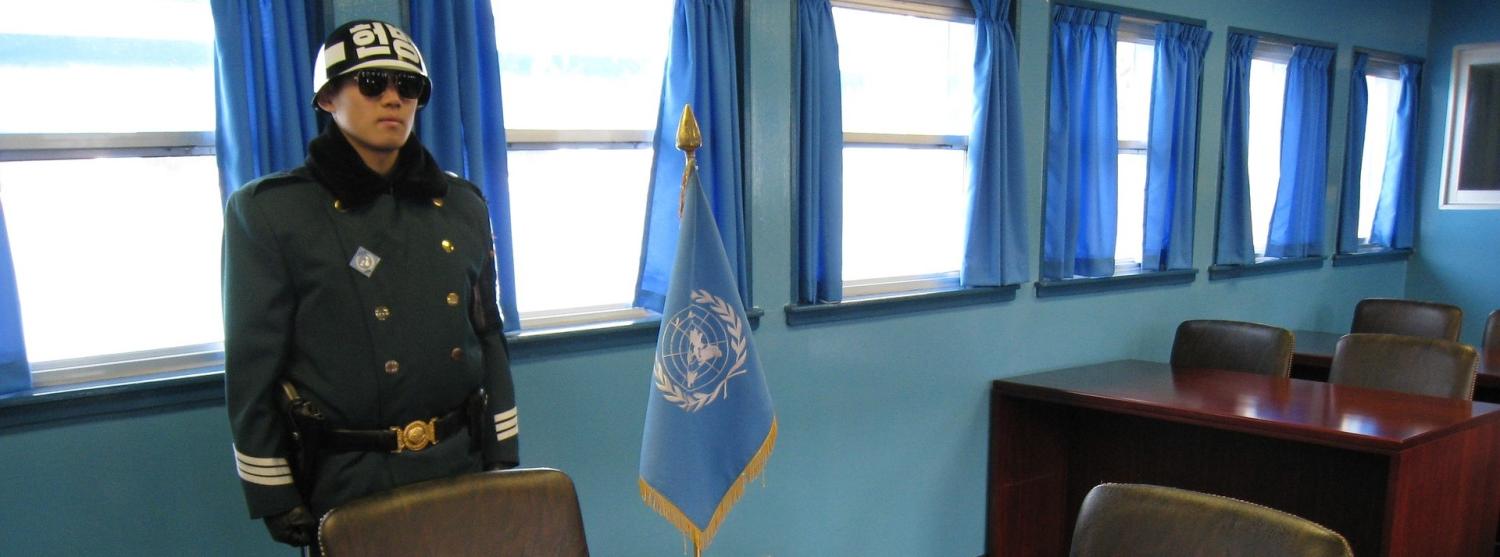Earlier this month the Lowy Institute's International Security Program, supported by the Korea Foundation, hosted the Australia-Republic of Korea (ROK) Emerging Leaders International Security Forum in Sydney and Canberra, bringing together scholars and future policymakers focused on the bilateral security relationship. This is the seventh in a series of posts from Forum participants.
Many security observers and policy makers in Seoul could not disguise their disappointment when North Korea conducted its fifth nuclear test in September 2016. North Korea described it as a 'nuclear warhead detonation test'. but also used the terms 'standardisation', 'miniaturisation'. 'lightweight'. and 'diversification'. None of these should distract from the import of the test: Pyongyang now must be treated as a de facto nuclear state and the approach adopted should be one of direct engagement.
Many observers have explored what the emergence of North Korea as a nuclear weapon state means for the Korean Peninsula and East Asia. They have examined such questions as whether these nuclear capabilities fundamentally alter the current security order on the Korean Peninsula, looked at the risks posed to the peace and security of the Peninsula, the region and the US, and considered the security implications of North Korea’s nuclear weapons to the South Korea-US alliance in particular and Northeast Asia in general.
While analysis on these topics is to some degree subjective, few could disagree that North Korea’s emergence as a nuclear state is a negative development in for Northeast Asia, a region known for its intrinsic instability. A nuclear North Korea is essentially reflective of the ways in which Seoul and Washington’s policy towards Pyongyang has failed for the past quarter century. North Korea’s fifth nuclear test and progressing missile technologies – clearly demonstrated in the latest launch over the weekend - speaks to a grim reality that has certainly complicated the deterrence paradigm on the Korean Peninsula.
The primary purpose for a weak power to acquire nuclear weapons is deterrence. But, while it is difficult to conceive of North Korea’s limited nuclear capabilities as offensive in nature, Pyongyang could become more provocative in its behaviour towards Seoul, depending upon the situation. North Korea is a bad country, but not a mad one; its leadership knows the potential consequences of unbearable retaliatory damage if it were to deploy its limited nuclear capabilities in a pre-emptive strike against South Korea. But its nuclear weapons will certainly work as a minimal deterrence measure against South Korea and the United States. In short, crisis stability in the Korean Peninsula will be sustainable, even if North Korea has nuclear weapons.
Assuming Pyongyang feels a greater sense of security and confidence because of its nuclear weapon, counter-intuitive dynamics open up a new set of opportunities for denuclearisation. The first priority has to be a freeze of North Korea’s nuclear program by directly addressing the security concerns of Pyongyang such as halting the Korea-US military exercises and hosting Six Party Talks. I am aware that engagement strategies alone do not guarantee successful denuclearisation. Such policies must be combined with sanctions and backed up by the threat of coercion if necessary. But in my view there is a compelling imperative to re-start engagement such as humanitarian assistance and cultural exchanges in order to restore confidence and trust on both sides.
South Korea and the United States have long sought to resolve North Korea’s nuclear ventures through a set of tortuous negotiations and audacious sanctions. All these efforts have essentially turned out to be futile. The lack of consistency in pursuit of denuclearisation let to a situation where it was impossible to implement a coherent set of policies. Moreover, the most recent presidential elections in Seoul and Washington greatly changed the scope and direction of their respective nations’ North Korea policy relative to their predecessors. In other words, this policy incoherence from negotiations to sanctions and vice and versa generated short-sighted policies reactive to Pyongyang’s delinquent behaviour. For nearly three decades, we have failed to deal with North Korea consistently with strategy aimed at constructing a positive outcome for Pyongyang as well its interlocutors.
If North Korea is about to emerge as an operational nuclear state - a highly unpalatable outcome for South Korea - then constructing a concrete roadmap of engagement for denuclearisation is the best option we have. This is the daunting security implication of North Korea’s nuclear conundrum to East Asia.

